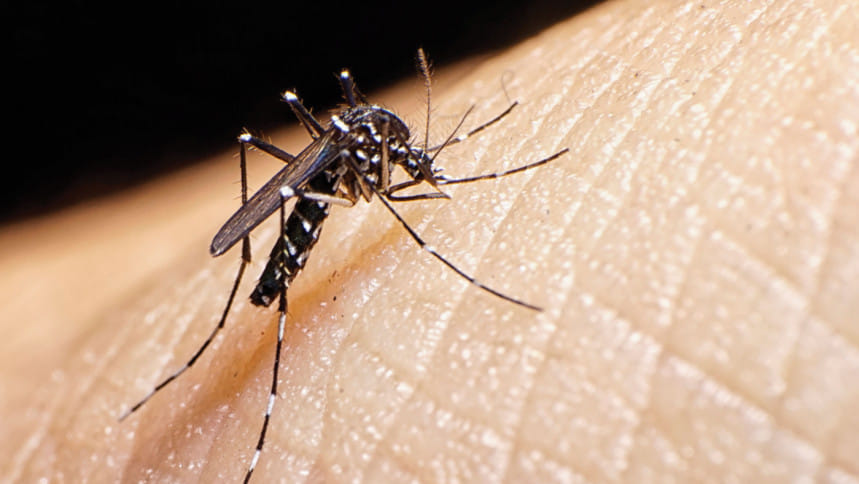Dry season defence: tackling Aedes mosquitoes effectively

Aedes aegypti mosquitoes are primarily responsible for the transmission of dengue, zika, and chikungunya viruses. Controlling the breeding sites of Aedes mosquitoes during dry seasons can reduce mosquito populations when the rainy season arrives. If we had been able to control the mosquito breeding sites during the dry season in 2022, we might not have witnessed the dengue epidemic in 2023. Mosquito control organisations need to respond immediately, especially during dry seasons.
Particularly in the dry season, it is crucial to focus on controlling the population of Aedes aegypti mosquitoes. Unlike other mosquito species, female Aedes aegypti mosquitoes do not lay their eggs directly in water. Instead, they lay eggs in containers that can hold water, one egg at a time. These eggs are usually placed on the inner walls of containers, where they await favourable conditions to hatch.
To initiate hatching, they first need to dry out and then undergo a process of rehydration, meaning they require water. Eggs can remain viable in open environments for several months or even a year. When these eggs come into contact with water, they rehydrate and resume oxygen intake, acting as a trigger for their development. Then eggs hatch, and mosquito larvae emerge. Having water available for them allows Aedes aegypti mosquitoes to adapt to environmental changes and quickly resume reproduction when conditions become suitable again.
When the dry season begins with light rain, these eggs start hatching as they come into contact with water. Once they hatch and transform into fully-grown mosquitoes from pupae, they are ready to reproduce during the rainy season. Therefore, once the mosquito population has grown, there is little we can do.
The rainy season creates many favourable breeding grounds for Aedes mosquitoes, potentially leading to a significant increase in their population. This, in turn, can pose a greater risk of the spread of diseases carried by these mosquitoes. This is why it is crucial to either eliminate or control mosquito breeding sites during the dry season, as this effort will greatly benefit us in the following year.
In particular, the focus should be on maintaining effective control of Aedes aegypti mosquito breeding sites during the dry season. The government should organise extensive public health education and involve the community in the effort to manage mosquito breeding sites effectively.
It is essential for us to take individual initiatives and keep our surroundings clean, both in our immediate vicinity and on rooftops. If we do not become aware even after the high number of cases and deaths in 2023, we may continue to face such situations in the future.
The writer is a researcher at the University of Queensland & QIMR Berghofer Medical Research Institute, Brisbane, Queensland, Australia. E-mail: [email protected]

 For all latest news, follow The Daily Star's Google News channel.
For all latest news, follow The Daily Star's Google News channel. 



Comments